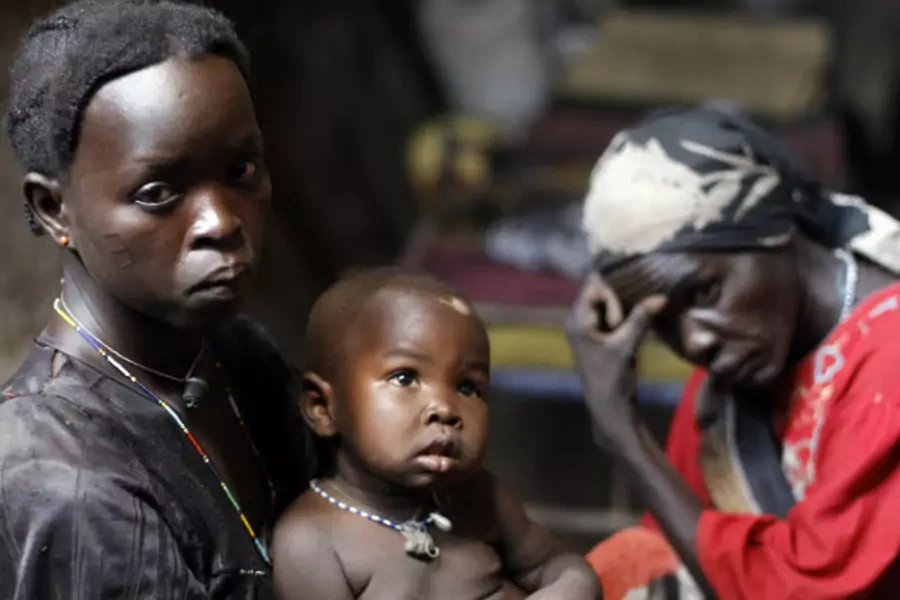More on:
Andrew C. Miller is a research associate at the Council on Foreign Relation’s Center for Preventive Action. He can be found on Twitter @andrewmiller802.
South Sudan just celebrated its first birthday, but in the words of one South Sudanese blogger, the nascent country is “screwed up.” Fears that the state’s institutions are already failing could be well-founded if the government doesn’t address systemic problems. No one factor explains the state’s fragility, but it’s widely recognized that corruption has eroded South Sudanese confidence in their government.
Since 2005, state officials and government contractors have stolen an estimated $4 billion from treasury coffers—an amount equivalent to 30 percent of the country’s annual economic output. In a particularly egregious example, the Ministry of Finance and Economic Planning squandered millions of dollars as grain contracts, meant to stave off an anticipated food shortage, were awarded to shell companies.
Although not as problematic as the high-level graft, it’s also not uncommon for court officials and other bureaucrats to solicit petty bribes.
South Sudan’s president Salva Kiir seems genuinely intent on cleaning up his government. He has offered amnesty to officials who return stolen assets and taken steps to repatriate funds hidden in foreign accounts. The moves have helped promote transparency. A senior official in Kiir’s party recently opened up her bank accounts for public scrutiny, and the justice minister will begin investigating the fraudulent grain contracts. But thus far only $60 million, or 0.015 percent of the stolen funds, have been recovered.
What can the United States do to help?
The U.S. experience in Afghanistan does not offer much hope that American officials, as outsiders, can address such a deeply-rooted problem. After years of focused coalition efforts, Afghanistan ranks near last on Transparency International’s Corruption Perception Index. Thankfully, however, South Sudan’s leadership seems willing to deal with corrupt officials unlike the Karzai administration.
The U.S. Justice Department should back Kiir’s efforts by vigorously enforcing the Foreign Corrupt Practices Act (FCPA), which outlaws U.S. companies from bribing foreign officials. The Justice Department can also work with the State Department to induce other countries to enforce their versions of the FCPA (if applicable) and international anti-corruption agreements.
For dealing with petty corruption, the United States should help South Sudan implement creative approaches. Website such as ipaidabribe.com in India may be a helpful model. The site is an online forum where Indians can record bribes and learn how to resist solicitations. South Sudan’s lack of internet bandwidth and mobile phone coverage would, of course, hamper an online forum in the near future, but low-tech options could be pursued until adequate infrastructure is in place.
In Kenya, for instance, the anti-corruption commission has set up school groups to imbue good governance at an early age. A similar program that teaches these values and provides practical steps for avoiding bribes might help in South Sudan.
The United States should support these efforts, but ultimately only the South Sudanese can stop corruption from poisoning their state.
More on:
 Online Store
Online Store
